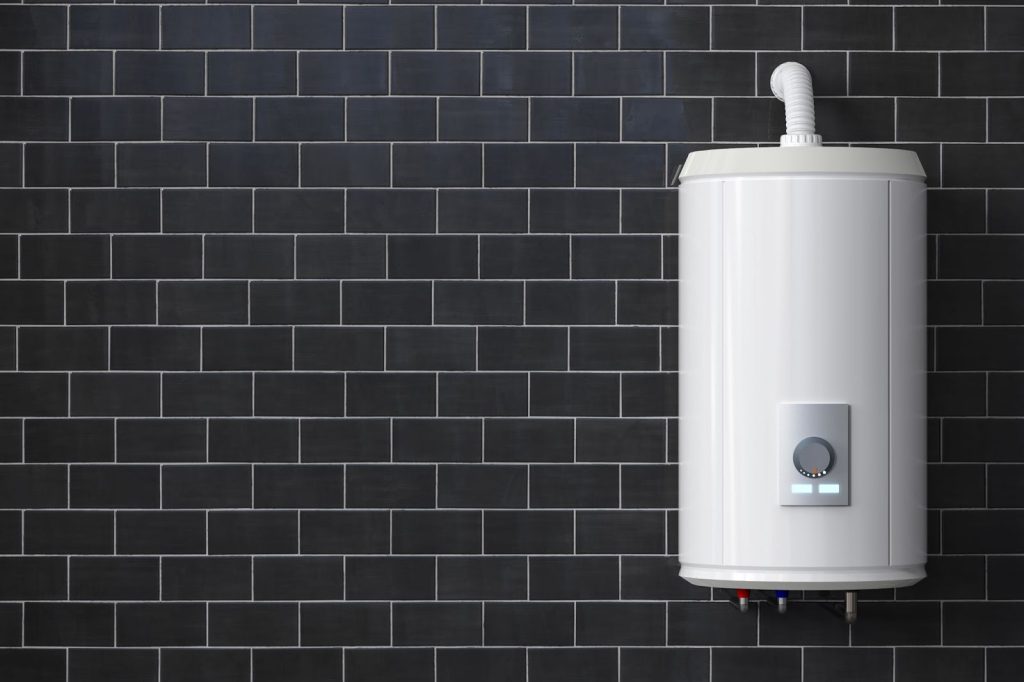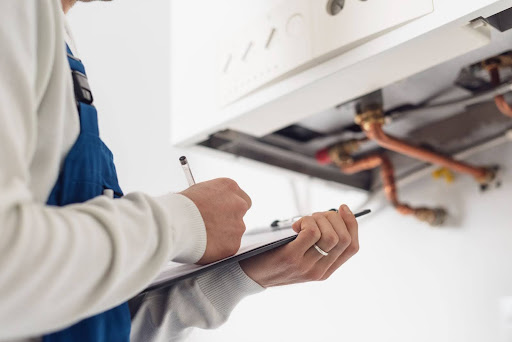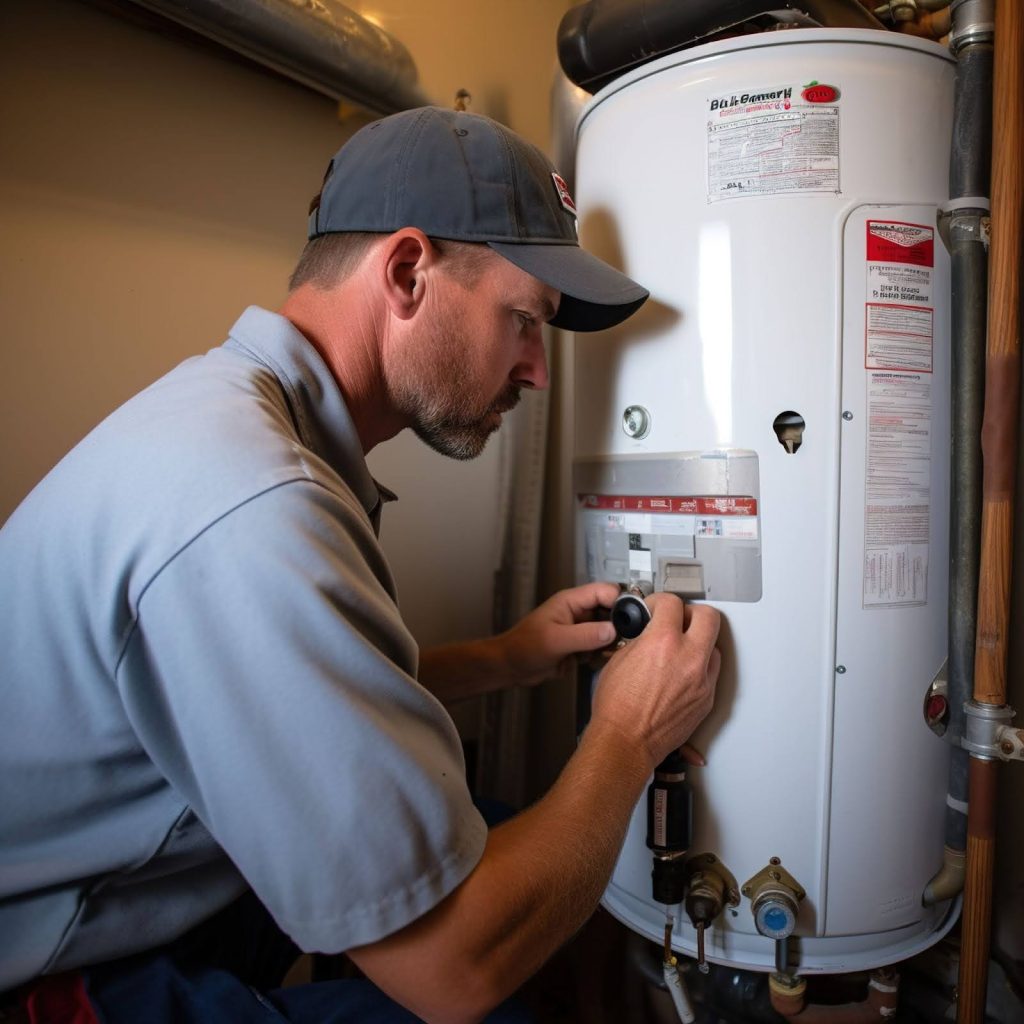Are homeowners concerned about the safety of their homes and families? We often overlook one crucial aspect – gas appliances and boiler safety. It is essential to prioritise the safety of gas appliances to prevent carbon monoxide poisoning. Neglecting proper maintenance and inspections can lead to serious accidents or even fatalities, such as damage, gas safety issues, repair needs, and the risk of carbon monoxide poisoning. But worry not, because we have got you covered.
Stay tuned as we dive into practical advice that will empower you to create a safer environment for your home and family. In this boiler room safety guide, we will provide essential tips on how to care for your boiler and ensure gas safety inspections are conducted regularly. It’s crucial to prioritise the maintenance of your boiler and understand the importance of water in its proper functioning.

In this boiler room safety guide, we will provide essential tips on how to care for your boiler and ensure gas safety inspections are conducted regularly. It’s crucial to prioritise the maintenance of your boiler and understand the importance of water in its proper functioning. Let’s prioritise boiler safety together!
Easy Boiler Care Tips
Pressure Gauge
- Regularly check the pressure gauge during gas safety inspections to ensure it stays within the recommended range in the boiler room safety guide. This is important for maintaining the safety of water and appliances.
- Maintaining proper water pressure is crucial for the efficient operation and longevity of appliances. It helps prevent damage and ensures that appliances function optimally. At Cadent, we provide top-notch service to ensure your water pressure remains at the ideal level.
Radiator Bleeding
- Regularly bleed radiators to release trapped air and maintain optimal heating performance for appliances.
- This simple step helps your cadent boiler work more effectively, keeping your home warm and cosy. It is especially important for appliances like boilers to be well-maintained.
Pipe Insulation
- Insulate appliances and cadent exposed pipes to protect them from freezing during colder months.
- Insulating frozen pipes is crucial for preventing costly repairs and damage to appliances.
Professional Servicing
- Schedule annual professional servicing for appliances to identify any potential issues early on.
- Expert technicians can detect problems with your appliances before they escalate, ensuring your boiler operates safely and efficiently.
By following these easy boiler care tips, you can protect your home and family while maximising the lifespan of your heating system. Regularly monitoring the pressure gauge, bleeding radiators, insulating pipes, and scheduling professional servicing are essential steps in maintaining a reliable and safe boiler. Remember that proper care not only enhances performance but also saves you money by avoiding expensive repairs down the line. Stay proactive with these simple yet effective maintenance practices to enjoy a warm and worry-free winter season.
Gas Safety Tips for Your Home
- Install carbon monoxide detectors near your boiler and throughout your home.
- Ensure proper ventilation in the boiler room to prevent gas buildup.
- Familiarise yourself with the smell of gas so you can detect leaks promptly.
- If you suspect a gas leak, evacuate immediately and contact emergency services.
Protecting your home and family is of utmost importance. Follow these tips to ensure a safe environment:
- Install carbon monoxide detectors: Place carbon monoxide detectors near your boiler and in various locations throughout your home. These devices will alert you if there are dangerous levels of carbon monoxide present, helping you take immediate action to protect yourself and your loved ones.
- Ensure proper ventilation: Proper ventilation in the boiler room is crucial to prevent gas buildup. Make sure that vents and flues are clear from obstructions, allowing for adequate airflow. Regularly check that all vents are functioning properly.
- Recognise the smell of gas: Familiarise yourself with the distinct odour of natural gas. This way, if there is a leak, you can quickly identify it by its distinctive scent of rotten eggs or sulphur. Prompt detection is essential for preventing potential hazards.
- Responding to a gas leak: If you suspect a gas leak in your home, prioritise safety above all else. Immediately evacuate everyone from the premises and leave doors/windows open while doing so if possible. Once safely outside, contact emergency services or the national gas emergency service for assistance.
By following these simple yet vital steps, you can enhance the safety of your home. Remember, always consult with a qualified professional such as a Gas Safe registered engineer for any concerns related to fuel safety in your home.
Tips to Keep Your Boiler Room Safe
- Store flammable materials away from the boiler room to minimise fire risks.
- Provide adequate lighting in the boiler room for better visibility during inspections or maintenance tasks.
- Keep the area around the boiler clear of clutter or debris that could obstruct airflow or access.
- Install a fire extinguisher near the boiler room as an additional safety measure.
To ensure boiler safety and protect your home and family, it is essential to follow these simple guidelines:
- Store flammable materials away from the boiler room: Keeping flammable items such as gasoline, paint thinners, or cleaning agents far from the boiler room reduces the risk of fire accidents. Storing them in a separate location ensures their vapours won’t reach ignition sources.
- Provide adequate lighting: Proper illumination is crucial in maintaining a safe environment within the boiler room. Sufficient lighting allows for thorough inspections and maintenance tasks, minimising potential hazards caused by poor visibility.
- Keep the area around the boiler clear: Clearing any clutter or debris surrounding your boiler promotes proper airflow and accessibility. This prevents obstructions that could impede ventilation, compromise efficiency, or hinder emergency response if needed.
- Install a fire extinguisher nearby: Adding an easily accessible fire extinguisher near your boiler room provides an extra layer of protection against potential fires. Ensure it is suitable for use on fuel-based fires and regularly inspect it to guarantee its functionality.
Prioritising Boiler Safety for Peace of Mind
Now that you have learned some easy boiler care tips, gas safety tips for your home, and tips to keep your boiler room safe, you are well on your way to ensuring the safety of your home and family. By taking these precautions, you can enjoy the warmth and comfort provided by your boiler without any worries. Remember, safety should always be a top priority.
To wrap up, let’s recap some key takeaways from this blog post. First and foremost, regular maintenance is crucial for the safe operation of your boiler. Make sure to schedule professional inspections and cleanings at least once a year. Always keep an eye out for warning signs such as strange noises or unusual smells coming from your boiler. And finally, never hesitate to contact a qualified technician if you have any concerns or questions about the safety of your boiler.




























